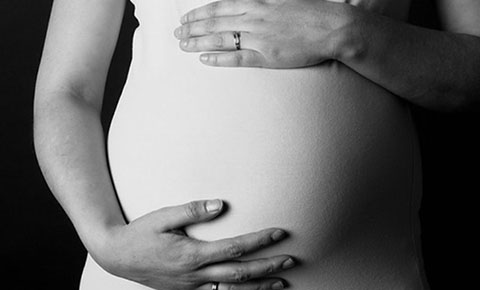Why Pregnant Women Can Be 'Cautiously Optimistic'
 Pregnant women and their children should fare much better during the COVID-19 pandemic than their counterparts who experienced the 1918 Spanish Influenza, a Northwestern University report suggests.
Pregnant women and their children should fare much better during the COVID-19 pandemic than their counterparts who experienced the 1918 Spanish Influenza, a Northwestern University report suggests.
In a timely review for the American Society of Health Economics, health economist Hannes Schwandt provides cautious optimism for expecting parents, which could lead to less stressful pregnancies and thus, healthier babies.
“Spanish flu infections caused many pregnant mothers to fall extremely ill even if they survived the pandemic,” said Schwandt, assistant professor of human development and social policy in the School of Education and Social Policy. “The current experience with coronavirus infections could not be more different, as the infections are typically mild or even go largely unnoticed in pregnant mothers.”
Schwandt, an economic demographer and faculty fellow at the Institute for Policy Research, researches whether economic shocks such as unemployment affect physical health, mortality, and fertility. He also studies the long-term effects stemming from adverse health exposures during the prenatal period or early childhood.
In assessing the relative risks of the two pandemics on a developing fetus, Schwandt looked at whether mothers’ mild responses to coronavirus infections are good or bad for an infant in utero.
Neither the coronavirus nor the influenza virus typically passes the placenta, so the baby is not in danger of contracting the virus. In addition, children born to mothers who had COVID-19 while pregnant seem to show no detectable impairments, and typically test negative for the virus.
The mild response to COVID-19 by pregnant women, therefore, is “a hopeful sign,” Schwandt wrote. “Strong inflammation is hypothesized to turn the mother’s immune system against her developing infant, but we’re not seeing that here.”
Schwandt stresses that our understanding of the threats posed by the coronavirus is still far from complete. Though COVID infections don’t seem to activate the immune system response in the same way as maternal influenza, it is still possible that physical or other impairments may appear later, even if they are not seen at birth.
Moreover, the current pandemic can have other stress-inducing effects on pregnant mothers and young children, including food insecurity and financial instability.
“Nutritional, economic, and psychological stress during pregnancy is bad for the fetus—it increases the risk of poor health at birth and negative, long-term consequences,” Schwandt wrote. “Removing unfounded anxieties about COVID-19 infections from a mother’s list of worries might help their developing infants.”